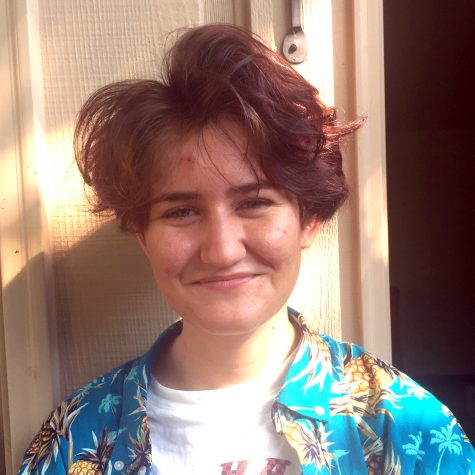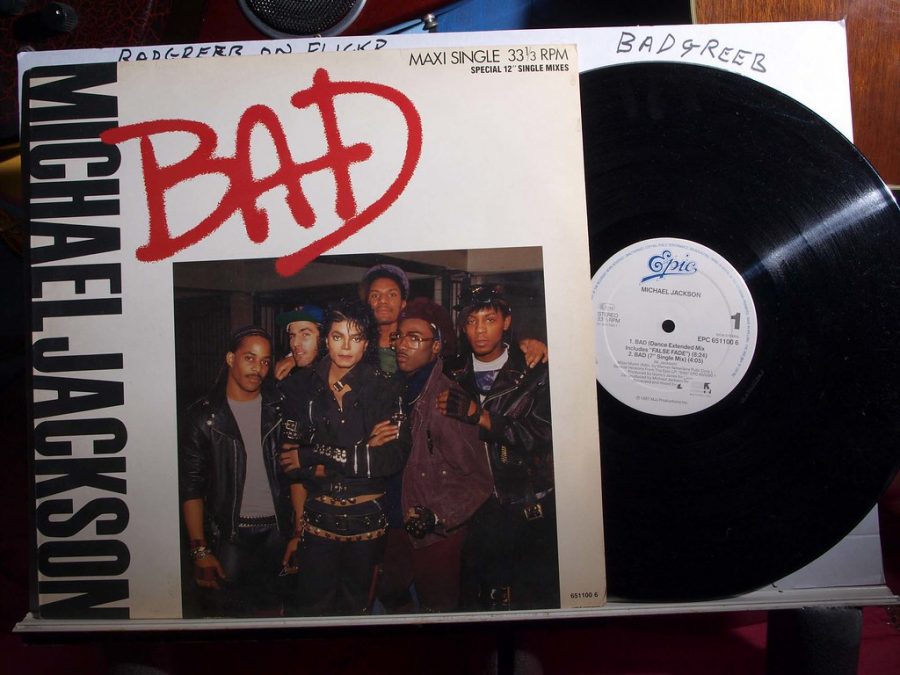Can You Separate the Art from the Artist?
Does the artist taint the art?
In recent years, many celebrities have been “canceled” for transgressions such as sexual assault allegations and generally offensive dialogue. When an artist is considered canceled or is controversial, it can be hard to consume their art without also consuming their biases.
One example is the author JK Rowling, who has recently been outed as a transphobe. Many people have also noted racist undertones in the Harry Potter series. Her character Cho Chang has been criticized for not only being the singular Asian character in the series but also a stereotype, as are the Patil twins. Is it possible to continue reading the series knowing that the author’s own biases may have influenced them?
There are also many different musical artists who have multiple sexual assault allegations against them. Artists like Call Me Karizma, who has been accused of sexual assault, confirmed to have sent inappropriate pictures to minors and engaged in inappropriate conversations with them. Even when it doesn’t directly affect the art, can you morally consume that music knowing the creator is a sexual predator? The question becomes tougher knowing that they are directly benefiting and making money every time you stream their music.
Even with deceased artists, is a separation between their art and their misconduct permissible? Micheal Jackson is immensely famous, but he’s almost equally infamous for being a sexual predator. Knowing the acts he committed during his life changes how you hear his music and how you interpret the lyrics. Consuming Micheal Jackson’s art is no longer directly contributing to him, but that doesn’t necessarily make continuing to listen to his music morally correct. It is easier to ignore the biases of your favorite artists than to acknowledge them and potentially stop supporting and listening to the music that you love. This warrants the question: at what point do you stop consuming art?
No one is perfect, so where do you draw the line? Multiple sexual assault allegations or membership of a white supremacist group may be a clear cause to stop supporting an artist. However, if you happened to find out your favorite artist had made homophobic comments in the past would you still be able to support them? What if they had made several apologies? Celebrities seem to be held to a higher standard than the regular public, simply because they are constantly observed. So how do you measure the severity of their actions, and when do you stop supporting them?
Because of the reach of celebrities, their actions have a greater impact than regular people’s. Continuing to support them sets a precedent, it makes other celebrities, and regular people think those actions are acceptable. Their position in the public view causes their actions to hold a lot of power, so it is important to hold them accountable.
More often than not you should leave it up to the impacted party whether or not to forgive an artist. Continuing to support an artist after the harmed community or individual has deemed their actions unforgivable is not only ignoring their wishes but also allowing others to believe they can commit the same transgressions without any consequences.
Even when an artist’s apology is accepted, if you decide to continue to consume the art of harmful people, it’s important to pay attention to the intentions of the art. Take everything they say and create with a grain of salt, and try to avoid unintentionally absorbing their biases, or further harming the communities and people hurt by the artists.

Selah is a BHS senior who enjoys writing and wants to continue improving her skills by joining the OWL. She hopes to bring to light to important issues in and beyond the Boulder High community and share some of her many opinions. When she’s not doing work for her classes, Selah enjoys nature. She grows many plants, including purple grapes in her backyard, which she far prefers to the green ones. She spends a lot of time hiking, camping, and enjoying the Colorado mountains. Selah likes to read. She often reads fiction; however, philosophy and nonfiction are also her favorites. She is also a singer and piano player and has written several songs of her own and many in collaboration with her brother....



hannah • Oct 4, 2021 at 2:42 pm
Hey Anne-
According to the most recent census, there are millions of people of Asian descent in Britain. Even if there were only ten British Asians, Rowling shouldn’t have named her character a gross stereotype. There are countless other examples of these stereotypes and “diversity quota” characters in HP (Anthony Goldstein, Padma Patil, JKR’s later claims that Hermione is Black without having put a single thought into that in the story, Dumbledore’s supposed queerness, etc). There are also far too many instances in the HP canon of innacurate or harmful tropes (like the house elves wanting to be enslaved, or the goblins having long noses and running all the banks).
Beyond that, an individual’s beliefs do actual damage. Rowling has an immense platform (13.9 million followers on Twitter alone) who listen to what she says. Her writing (& therefore her beliefs) have been brought up in court in the USA in context of a blocking a bill that called for equitable health care to LGBTQ+ people. Violence is not the only form of harm- trans people are far more at risk for attempting suicide than their cisgender peers. Rowling has power & influence- what she says publically has a genuine influence,
I agree that cancel culture is a vastly ineffective system (Trump, a rapist, was president & still retains immense influence over the direction of the political landscape). JK Rowling, however, is a harmful figure who has created art- bringing us back to Selah Dow’s question- can you seperate Harry Potter from Rowling?
Sources:
ethnicity-facts-figures.service.gov.uk/uk-population-by-ethnicity/national-and-regional-populations/regional-ethnic-diversity/latest
lgbtqnation.com/2020/06/j-k-rowling-helped-kill-proposed-american-lgbtq-civil-rights-law
hrc.org/news/new-study-reveals-shocking-rates-of-attempted-suicide-among-trans-adolescen
Anne • Sep 24, 2021 at 6:16 pm
“Her character Cho Chang has been criticized for not only being the singular Asian character…” um maybe because it takes place IN BRITAIN, obviously in Asia they would have Wizardry school and all the students would be Asian (if they created a story in Japan and there is only 1 single white person in the series nobody would ever go “WHY IS THERE ONLY 1 WHITE PERSON”, would they??), it’s not like Hogwards accepts magical children from all over the world, they only accept the ones in England. Seriously, some people go TOO far when it comes to cancelling people.
Cancel culture is so toxic. Many people get cancelled even when they’ve done nothing wrong, but just because of their beliefs. Its not normal. People should be judged on their deeds. JKR? She has done many good things, such as donating so much to charities. And she hasn’t abused anyone because of her beliefs. Has she ever attacked a trans person? Beat them up or something? NO. Someone’s beliefs don’t actually abuse or harm anyone. She has DONE more good than bad. Yet everyone feels the need to cancel her and mock her and they feel like good people?? Disgusting.
And. . . ? • May 13, 2021 at 5:05 pm
I never got an answer to the question
WhoCares • Feb 28, 2021 at 8:37 am
You can listen to who ever you want. I don’t think it really matters. I still enjoy a band called Blood on the Dancefloor, despite what one member of the band did. (Rape allegations involving minors.) It is unfair to the other members of the band to just “cancel” their music. They could have just kicked him out or replaced him but sadly, their name and image is tainted by the allegations. They haven’t released a new album in years, as far as I know. As for listening to MJ, again, who cares. He’s dead, so it doesn’t matter what he did or didn’t do, as it no longer affects anybody. I will listen to whatever I want.